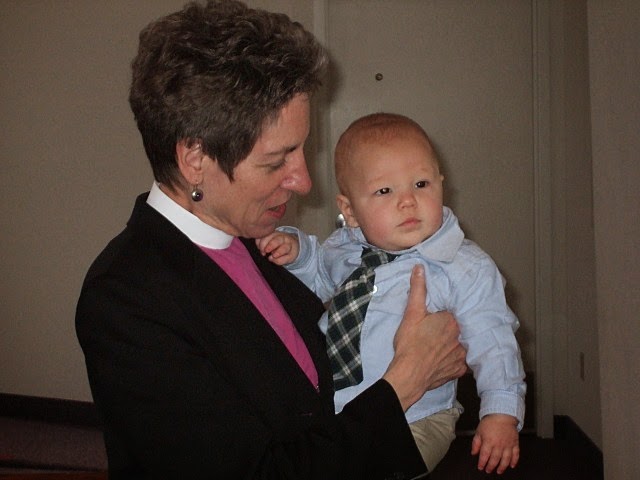The Episcopal Church in the United States of America has been in existence since at least 1789. General Convention, created at that time, not only included but started with the laity and then included clergy and only "reluctantly" and "belatedly" included a House of Bishops. Clearly, William White trusted the laity to balance whatever else would happen in the future. This is unique in all of the Anglican world and it is the least understood piece of the Episcopal Church by anyone outside these United States. Laity inside the church are supposed to be our hidden strength. We believe that given the spiritual strength of the laity our church can do anything. The laity not only balance the clergy but on more than one occasion lead the clergy. That fits so very nicely with the concept of scripture, reason and tradition -- the Hooker three-legged stool. Clearly it is the extension of the whole idea that balancing scripture with reason and reason with tradition and tradition with scripture (and so forth) and the extension of what was begun in England with Hooker and Elizabeth and Cranmer and Locke and Hobbes. Since 1994 the laity have led the church in full inclusion by all for all and with the sacraments. Most notably our LBGT brothers and sisters.
The citizens of the United States have enjoyed a representative democracy since about 1789 and while we may not be the envy of the entire world we continue to receive millions of refugees even today. Of late several states have exercised the franchise and in so doing restricted the rights of one or more groups. Most notably and most frequently our LBGT brothers and sisters. Proposition 8 in California and I think it was proposition 1(or 1E) in Maine. There has also been at least one other state where when given the opportunity, the laity elect bigotry instead of full inclusion.
This leads me to my real question or rather my dilemma. Trust, I am having some real trust issues with this whole area. What do i mean? Well, we, the laity have a significant role to play in the governance of our church. In fact, it would be interesting to see some changes wherein the laity take a more prominent role at convention. But, and this is a large but at that, what I have seen lately scares me almost beyond belief. One could say that those who have voted for the propositions throughout the country to restrict LGBT rights are Catholics and Mormons and Baptists and others, certainly not Episcopalians. And to that I would say, "Hold on Buckeroos!". Look at the diocese of Quincy and San Joaquin, and the diocese of Pittsburgh and Fort Worth. And Look at the diocese of South Carolina and the diocese of Louisiana. I am convinced that I would not want a majority of those folks voting on whether the sun will rise tomorrow let alone on any one's right to participate fully in sacraments.
So, folks what do you think we should do? Do we go with William White (ultimately he was a bishop) and strengthen and expand the the laity's role in General Convention or do we do something different? If something different what should it be?
While you are thinking on this, keep St. Mark's Chapel in Beaufort, South Carolina in your prayers and keep those cards and letters going to now Bishop Lawrence soon to be Mr Lawrence going.

No comments:
Post a Comment